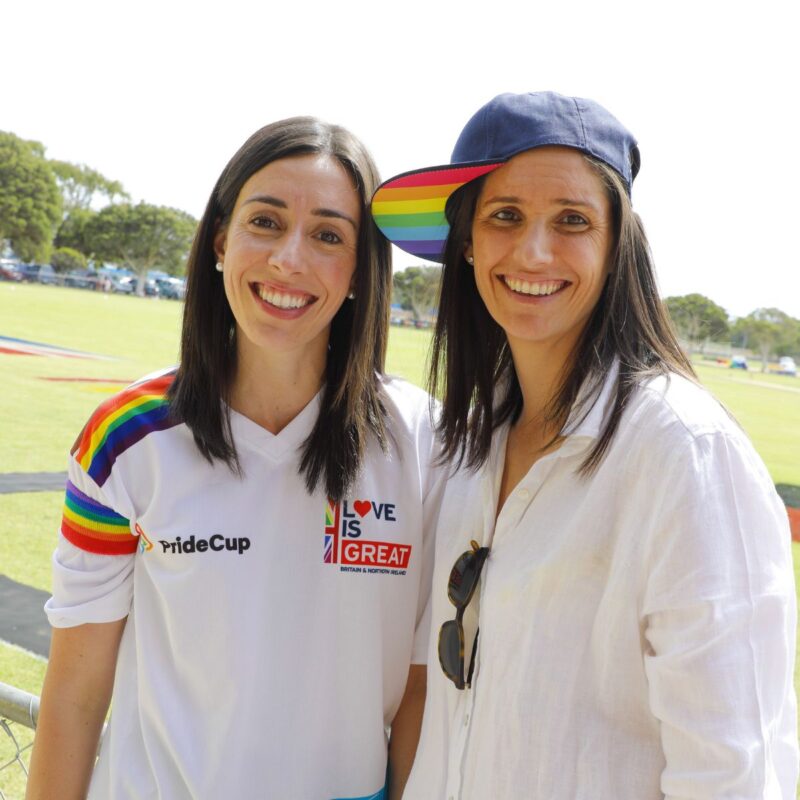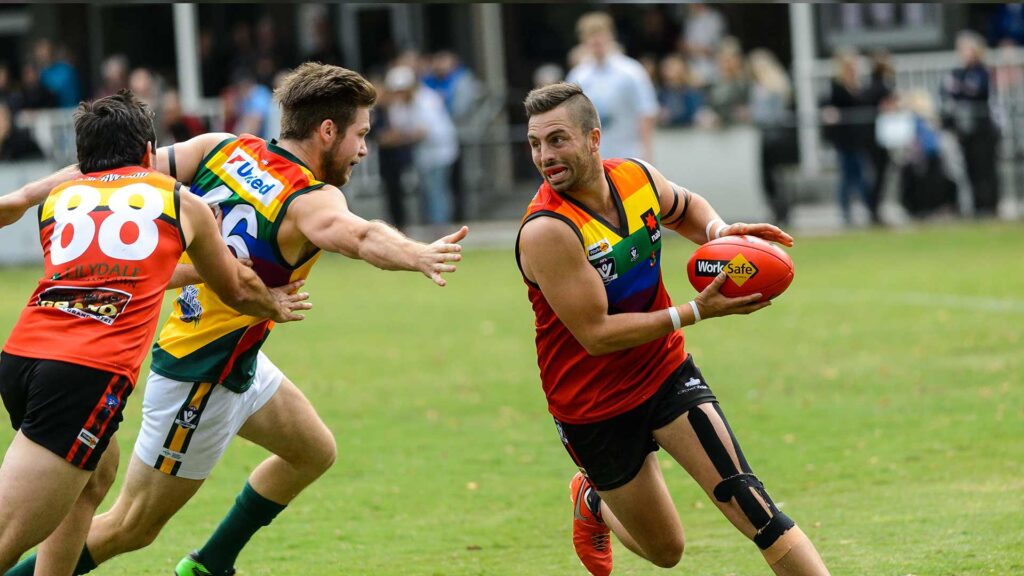Pride Cup returns to its grassroots origins

What does inclusive leadership really look like?
When I came on board as Chair of Pride Cup, I was particularly horrified by two statistics: 85% of Australians have witnessed homophobia in sport, and 75% of them still don’t think it’s safe to be a gay spectator at a sporting event.
Pride Cup harnesses the power of sport to send a strong message of hope, inclusion and acceptance to LGBTIQ+ athletes, officials and supporters. By addressing harmful gender norms at the community level, we believe we can affect instances of homophobia and harassment throughout greater society. That’s leadership.

Pride Cup is as much about education as it is about sport. Research by Princetown University has found that using peer role models to deliver education and call out harmful language is much more effective than the use of professional trainers. Bystander training developed by Monash University in partnership with the Pride Cup charity was provided for team captains at the world’s first community rugby pride game, hosted by Melbourne Rugby Club last weekend. A 2020 report released by Monash University and VicHealth shows participants from clubs participating in a Pride Cup were less likely to use discriminatory language than those from community clubs, and have a positive influence on providing supportive sporting environments for LGBTI+ players. The training is being rolled out in community Australian rules clubs in Melbourne through May.
Sam Larritt, captain of Melbourne Rugby Club’s Colts (under-20) team, told The Guardian’s Megan Maurice the training was eye-opening. “I hadn’t thought about my role in stopping language like this,” said Sam. “I think the benefit of asking captains to help is that they have a relationship with the guys. It’s not some stranger coming in and telling them to stop using language and making them feel bad.”
“It’s a lot easier for me to have a conversation with everyone about the kind of environment we want. I’m also with the guys a lot and so I can remind them of the language we decided is acceptable as a group.” (Maurice, The Guardian, 2021)

Last weekend, the sun was shining out the Yarra Valley, the footy and netball players had an extra smile and understanding in their exchanges and the lines on the field were brilliant, arching rainbows. It was wonderful to see the Pride Cup played back where it all began.
When Jason Ball publicly came out as gay in 2012, his teammates from the Yarra Glen Football Netball Club wanted to show him they had his back. The team came up with the idea to stage a Pride Cup, with players wearing rainbow jumpers, and 50-metre lines painted in rainbow colors. It was an event that galvanized the entire community and became the inspiration for the now annual AFL Pride Game, first played between St Kilda FC and Sydney Swans in 2016. Since hitting the national stage, communities across Australia have joined the movement, with Pride Cups being expanded into other sporting codes nationally.
Ultimately, we are trying to shift the conversation and ensure that people of all shapes and sizes, gender identities or personal identities feel welcome, safe and celebrated in sport.

While it’s been great to see pride games have become common throughout professional sport, Australia is unique in holding these events in regional and community settings, where harm can be insidious and unvetted. A Pride Cup event allows the issue to be raised in a positive way that enables us all to be a part of a more equitable and caring culture. We are committed to building momentum throughout all sports and beyond Aussie borders.
Why not host a Pride Cup event with your local sporting association or get your company involved as a meaningful way of making progress on the diversity and inclusion agenda? Pride Cup has grown into a national movement for change that transcends sport. We’d love you to be a part of it.
Visit pridecup.org.au to get involved.
